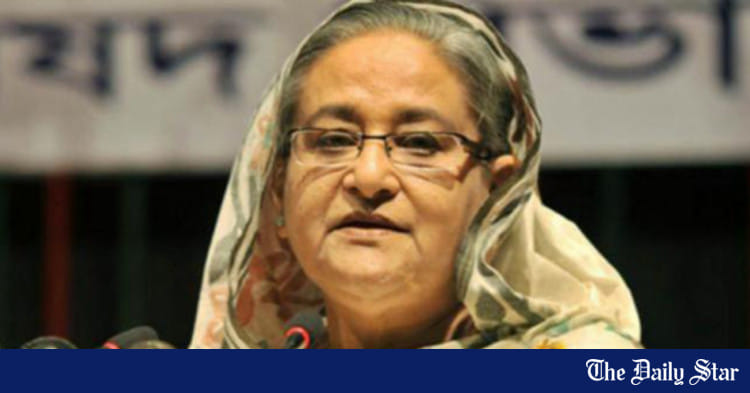Saif
Senior Member
- Joined
- Jan 24, 2024
- Messages
- 17,104
- Likes
- 8,163
- Nation

- Residence

- Axis Group


Formal charges against Sheikh Hasina to be filed tomorrow: Chief Prosecutor
Chief prosecutor of the International Crimes Tribunal, Tajul Islam, said that formal charges will be filed against the ousted formerPrime Minister Sheikh Hasina tomorrow, Sunday. He made the disclosure at a discussion meeting titled 'Immediately Bring Those Involved in Enforced Disappearances...
Formal charges against Sheikh Hasina to be filed tomorrow: Chief Prosecutor
Staff Correspondent Dhaka
Published: 31 May 2025, 15: 50

Today, Saturday, the human rights organisation Odhikar organised a discussion meeting in memory of the victims of enforced disappearances. Chief Prosecutor of the International Crimes Tribunal, Tajul Islam, spoke at the event. The programme was held at the National Press Club today, 31 May. Prothom Alo
Chief prosecutor of the International Crimes Tribunal, Tajul Islam, said that formal charges will be filed against the ousted former prime minister Sheikh Hasina tomorrow, Sunday.
He made this disclosure at a discussion meeting titled 'Bring those involved in enforced disappearances to justice immediately,' held at the National Press Club today, Saturday.
The human rights organisation Odhikar organised this as part of the International Week of the Disappeared, which is observed from 17 to 31 May.
Tajul Islam said, "We are determined to move forward with the judicial process."
He referred to Sheikh Hasina as the “nucleus of enforced disappearances and the ‘Ayna Ghar’ (secret detention centre).” He stated that significant progress in the trial process would be visible by December.
He further said that the judicial process is moving ahead at full speed, but completing the investigation will take a reasonable amount of time.
Tajul Islam mentioned that investigations into 10 to 15 major cases of enforced disappearances have already been completed. He added that the reports will be available by June.
Stating that many of the obstacles to the trial process have been removed, the chief prosecutor said that the International Crimes Tribunal has broadly identified the structure of the crimes and those responsible.
However, some obstacles remain in arresting those involved in the disappearances. “We are working to ensure the arrests,” he said.
Tajul Islam also noted that they are proceeding with great caution in the trial process.
He emphasised that they are committed to upholding international standards of justice and human rights, and are careful about avoiding any miscarriage of justice, as has happened in the past.
Staff Correspondent Dhaka
Published: 31 May 2025, 15: 50
Today, Saturday, the human rights organisation Odhikar organised a discussion meeting in memory of the victims of enforced disappearances. Chief Prosecutor of the International Crimes Tribunal, Tajul Islam, spoke at the event. The programme was held at the National Press Club today, 31 May. Prothom Alo
Chief prosecutor of the International Crimes Tribunal, Tajul Islam, said that formal charges will be filed against the ousted former prime minister Sheikh Hasina tomorrow, Sunday.
He made this disclosure at a discussion meeting titled 'Bring those involved in enforced disappearances to justice immediately,' held at the National Press Club today, Saturday.
The human rights organisation Odhikar organised this as part of the International Week of the Disappeared, which is observed from 17 to 31 May.
Tajul Islam said, "We are determined to move forward with the judicial process."
He referred to Sheikh Hasina as the “nucleus of enforced disappearances and the ‘Ayna Ghar’ (secret detention centre).” He stated that significant progress in the trial process would be visible by December.
He further said that the judicial process is moving ahead at full speed, but completing the investigation will take a reasonable amount of time.
Tajul Islam mentioned that investigations into 10 to 15 major cases of enforced disappearances have already been completed. He added that the reports will be available by June.
Stating that many of the obstacles to the trial process have been removed, the chief prosecutor said that the International Crimes Tribunal has broadly identified the structure of the crimes and those responsible.
However, some obstacles remain in arresting those involved in the disappearances. “We are working to ensure the arrests,” he said.
Tajul Islam also noted that they are proceeding with great caution in the trial process.
He emphasised that they are committed to upholding international standards of justice and human rights, and are careful about avoiding any miscarriage of justice, as has happened in the past.









































